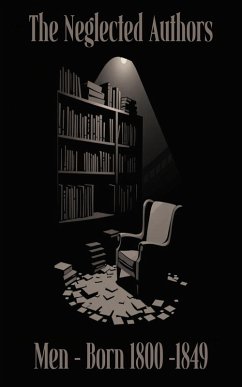Throughout the long centuries of human history is the want, and the need, to share information, to exchange ideas and for that knowledge and experience, for curiosity and learning, to be the basis of a civil society.
In literature the ambition is much narrower. In order to be known, to be popular, you had to be published. And for that people had to know you existed and your ideas worth reading. Obviously for most of humanity's time people couldn't read and texts couldn't be published in any great number.
In the 15th Century Gutenberg's printing press began the revolution to address the second and by the 19th century had gathered pace with startling speed and mass distribution. Education for the many was brought in to help people understand more of their world and, with new skills, how to have a better place within it. Now, if the powers that owned the presses and means of distribution agreed an audience would now be able to avail themselves of your ideas, your printed words.
Whilst male authors were the overwhelming majority of beneficiaries in having their work printed time was their constant enemy. Your work could be immensely talented but if it was not to lure money into the coffers by gaining an audience of readers then your career would be one of pleasing yourself and was soon forgotten.
But the printed word is rarely without someone, somewhere busying themselves through piles of papers and books rediscovering what a good story is, whatever its age.
In this volume we offer up a small selection of talents from the literary landscape of 1800 to 1849 and its male authors whose time has now come again.
In literature the ambition is much narrower. In order to be known, to be popular, you had to be published. And for that people had to know you existed and your ideas worth reading. Obviously for most of humanity's time people couldn't read and texts couldn't be published in any great number.
In the 15th Century Gutenberg's printing press began the revolution to address the second and by the 19th century had gathered pace with startling speed and mass distribution. Education for the many was brought in to help people understand more of their world and, with new skills, how to have a better place within it. Now, if the powers that owned the presses and means of distribution agreed an audience would now be able to avail themselves of your ideas, your printed words.
Whilst male authors were the overwhelming majority of beneficiaries in having their work printed time was their constant enemy. Your work could be immensely talented but if it was not to lure money into the coffers by gaining an audience of readers then your career would be one of pleasing yourself and was soon forgotten.
But the printed word is rarely without someone, somewhere busying themselves through piles of papers and books rediscovering what a good story is, whatever its age.
In this volume we offer up a small selection of talents from the literary landscape of 1800 to 1849 and its male authors whose time has now come again.
Dieser Download kann aus rechtlichen Gründen nur mit Rechnungsadresse in D ausgeliefert werden.









